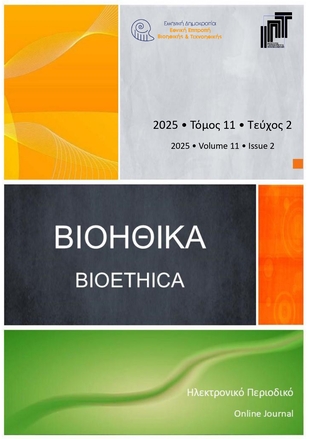AI and Democracy: Concerns, scenarios and ethical dilemmas
Resumen
If Artificial Intelligence envisages the 4.0 Industrial Revolution and if Technoethics is the multi-disciplinary field that sounds out and discerns the ways our value systems are impacted in the light new technologies, this Article seeks to bring forward opinions voiced on the future of human society, politics and democracy. Is the excessive deployment of AI in both private and public sphere capable of affecting our way of thinking, judging, acting, reacting, making (or delegating) decisions and participating in the res publica? Capitalizing on the field of neuroethics and political science we classify the procedures of human political decision-making, while bringing forward the opinions of techno-optimist and techno-pessimist scholars. Line of arguments ranging from bona fide usage of AI, ethical policy making, enhanced democratic representation down to solutionism and democratic perils of Algorithmic Decision-Making, Echo Chambers, AI biases, and gaps in Accountability, Responsibility, Transparency and Explanation will be presented as a bibliography overview. In the Discussion area paradigms and ethical dilemmas will be outlined for the interest of future research.
Article Details
- Cómo citar
-
Sampathianaki, A. (2025). AI and Democracy: Concerns, scenarios and ethical dilemmas. Bioethica, 11(2), 41–56. https://doi.org/10.12681/bioeth.42843
- Sección
- Reviews

Esta obra está bajo una licencia internacional Creative Commons Atribución 4.0.
Authors who publish with this journal agree to the following terms:
- Authors retain copyright and grant the journal right of first publication with the work simultaneously licensed under a Creative Commons Attribution CC BY 4.0 License, which allows for immediate free access to the work and permits any user to read, download, copy, distribute, print, search, or link to the full texts of articles, crawl them for indexing, pass them as data to software, or use them for any other lawful purpose. Appropriate credit must be given by citing the author(s) and the original publication in this journal.
- Authors are able to enter into separate, additional contractual arrangements for the non-exclusive distribution of the journal's published version of the work (e.g. post it to an institutional repository or publish it in a book), with an acknowledgement of its initial publication in this journal.
We encourage authors to deposit their articles, as well as data underlying the publications, in institutional and/or other appropriate subject repositories.
Bioethica permits and encourages authors to archive the final publication pdf in institutional (e.g. the repository of the National Hellenic Research Foundation) or other appropriate subject repositories (e.g. SSOAR repository for social sciences), in compliance with institutional and/or funder open access policies, after publication in the BIOETHICA. Authors must provide bibliographic details that credit publication in the journal, as well as related funding details (when applicable).
Lists of institutional and other subject-based academic open access repositories can be found listed by country at the registry http://opendoar.org/countrylist.php
If your institution does not possess a repository you may deposit a copy of your paper at no cost with www.zenodo.org , the repository supported for open access research in the EU by the European Commission, through the project OpenAIRE (www.openaire.eu )



